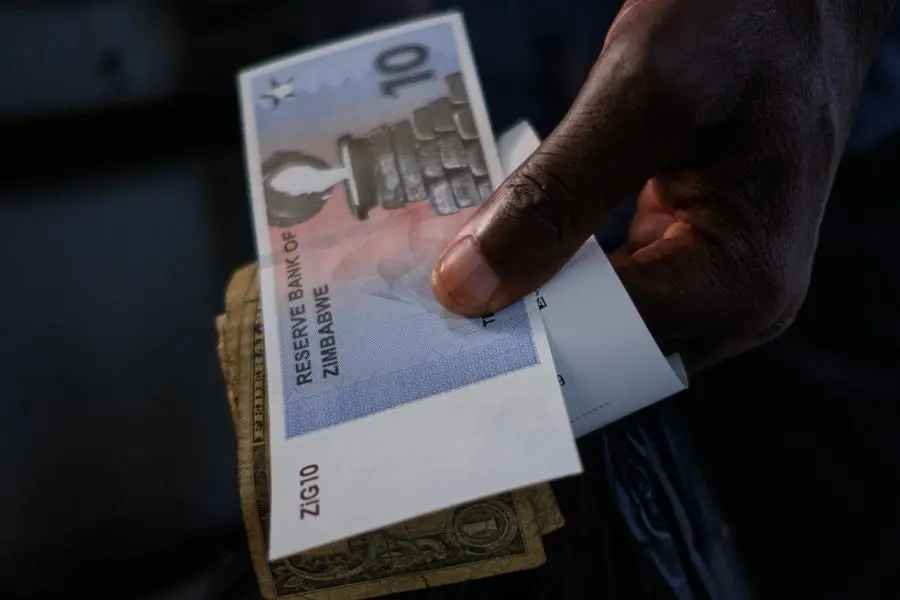PHOTO
A monthlong-drive by Zimbabwean authorities to stifle the unofficial market in their new gold-backed currency is driving the business off the streets and into the bank.
Zimbabwe has imposed fines for not doing transactions at the official exchange rate of the ZiG, which stands for Zimbabwe Gold. The unit was introduced in April and is the southern African nation’s sixth attempt in 15 years to stand up a stable local currency.
“The parallel market is not as loud and visible as it was before the latest blitz,” said Lawrence Nyazema, president of the Banker’s Association of Zimbabwe. Lenders are seeing “an uptick in formal market activity,” he said.
Street dealers across the country have been forced to abandon their regular city-center spots and have switched to using mobile phone messenger platforms to avoid detection.
Zimbabwe’s crackdown mirrors measures by other governments in the region where local currency depreciation has fanned inflation, stoking a cost of living crisis that’s spilled into public unrest.
The local currency was trading at 13.31 per dollar on Tuesday, up 1.9% from its launch price of 13.56.
The ZiG is backed by 2.5 tons of gold and $100 million in foreign currency held at the central bank, which vows not to print more ZiG notes than can be underpinned by reserves.
Printing money to finance government spending is what sabotaged previous efforts to launch a local currency, sparking sky-high inflation and collapsing values against the dollar.
Speculation in the unofficial market contributed to volatility, with the authorities taking aim at street traders for the demise of the Zimbabwe dollar, which the ZiG replaced on April 5.
© Copyright The Zimbabwean. All rights reserved. Provided by SyndiGate Media Inc. (Syndigate.info).




















